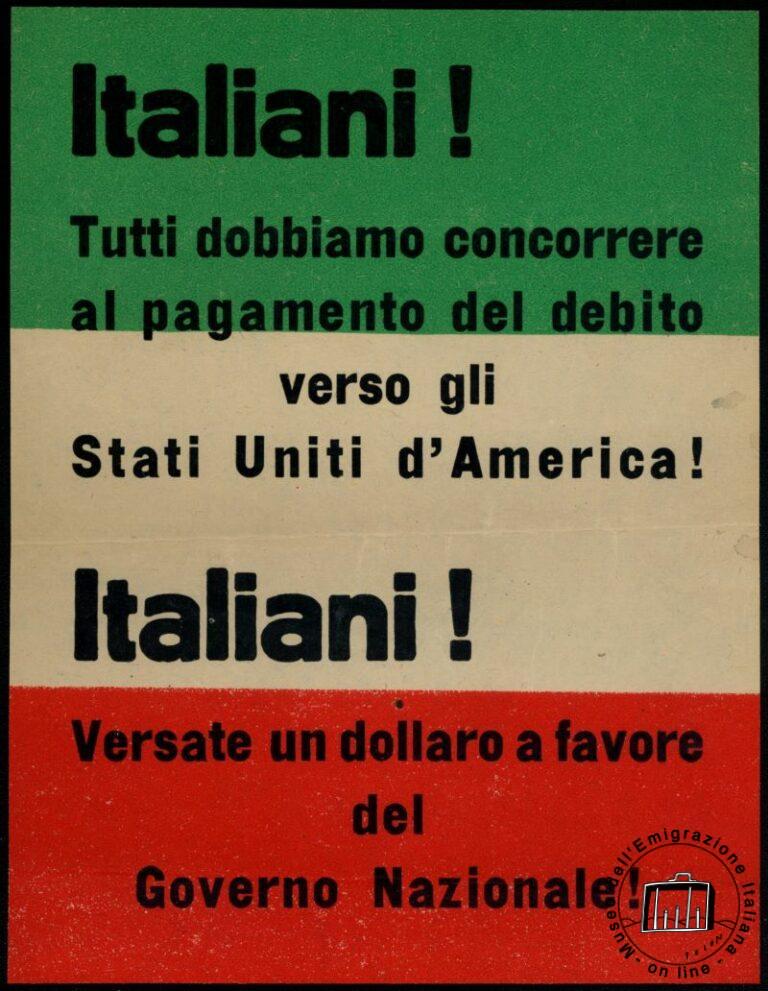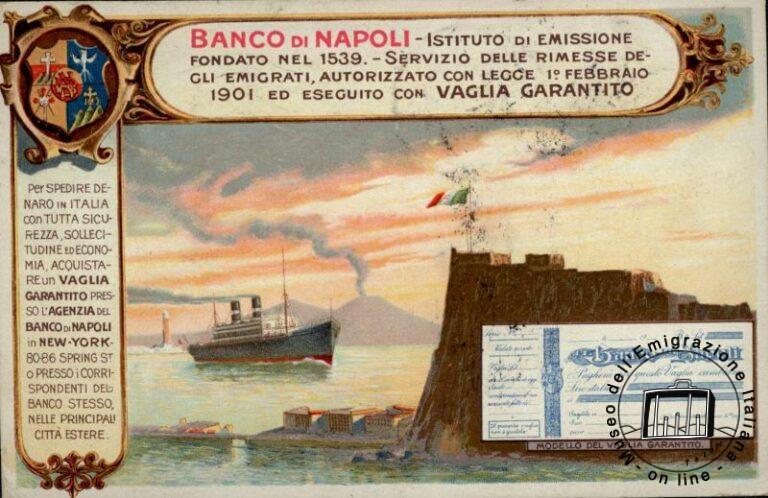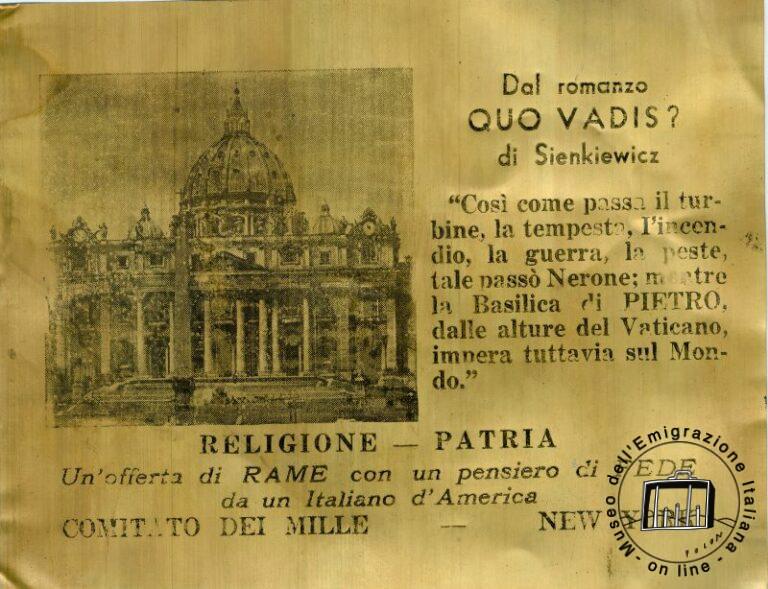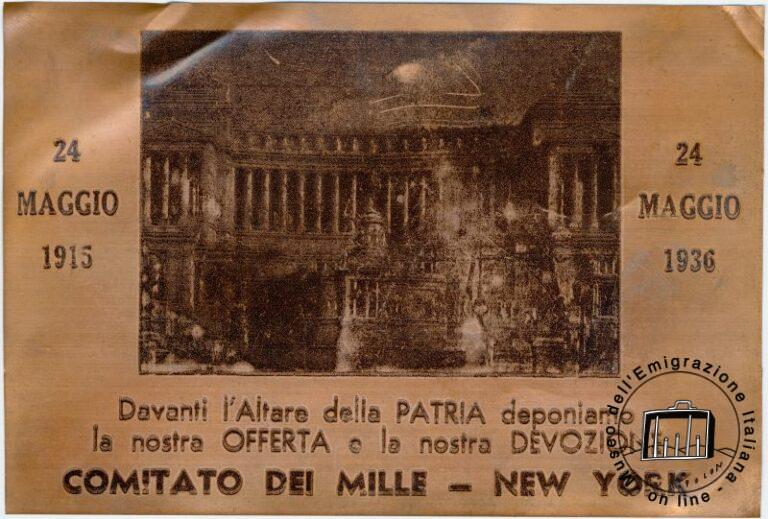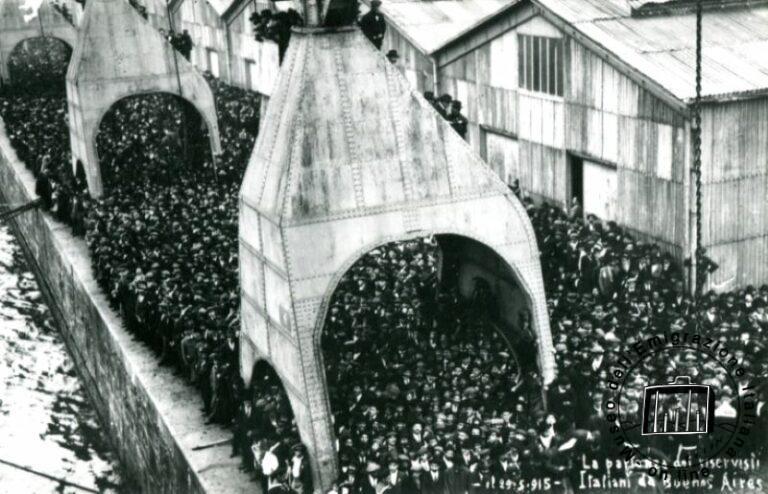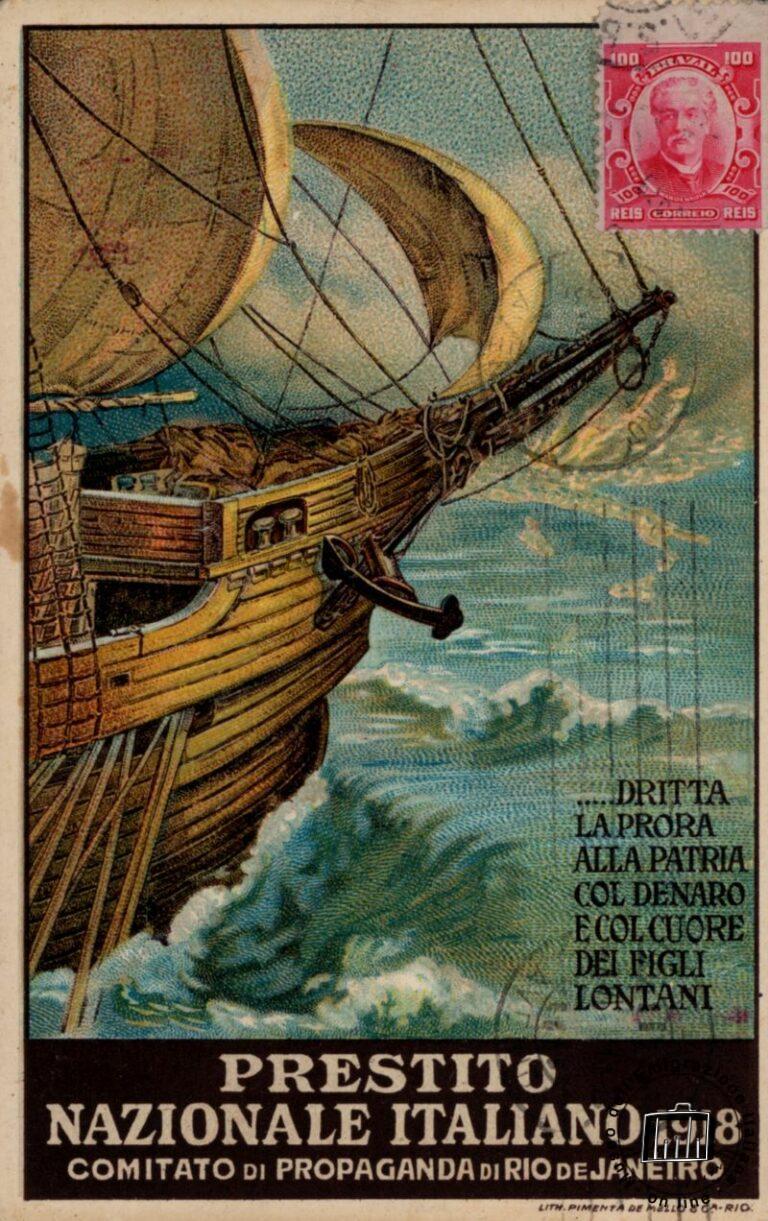The pen is a tool that is not docile in the hands of those who do not know how to use it, and therefore the emigrants' letters often said "nothing." Remittances, on the other hand, attested, without any possibility of misunderstanding, that work and health were not lacking and that the migration project was being realized. Those hard-earned savings, which lifted the fortunes of so many families, were also a mainstay of our country's industrial development.
According to a study by Francesco Balletta, in the first fifteen years of the twentieth century, the amount of remittances from abroad annually exceeded the revenue from direct taxes charged by the Italian state.
In reality they were even greater in that the study refers only to what was collected through the Banco di Napoli, the only credit institution institution institution institutionally invested, since 1901, with this task. Savings sent from abroad through an innumerable number of "bankers" and small bankers thus escape calculation, to say nothing of those sent or brought "by hand" to Italy. Of course, remittances served first and foremost to settle the family's past debts and those incurred to finance expatriation.
The relationship with Italy naturally did not end in remittances to families. Even during natural disasters, such as earthquakes and floods, communities around the world sent money back home. An equally generous response occurred during World War I and World War II when not only money but men ready to enlist came from abroad.
Even in the 1930s, when sanctions were imposed on Italy for the war in Ethiopia, emigrants and their descendants made concrete contributions.


